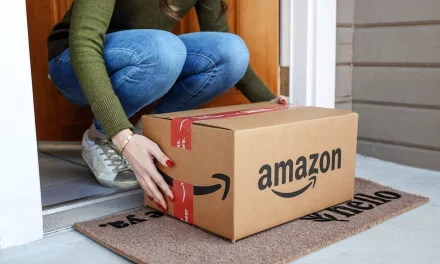
PCR Wars: Does Amazon have the infrastructure needed to move into Covid testing?

As the UK Government’s home testing supply chain crumbles, Amazon is about to enter the Covid testing market, but leading Covid-19 testing expert Dr Quinton Fivelman says its turnaround could be too slow.
The Government’s Covid-19 home testing crisis meant no lateral flow tests were available via its website or phone lines for a third day on Wednesday. This has highlighted the issues around home test kit supplies during the current Omicron wave. Dr Quinton Fivelman, PhD, the Chief Scientific Officer at London Medical Laboratory, says the logistics supporting home testing are complex and may even create problems for the e-commerce giant Amazon as it moves into the market.
Dr Fivelman has welcomed the arrival of Amazon in the testing market, following the online giant’s launch of its PCR tests for UK customers on Monday. Dr Fivelman says Amazon could provide extra capacity in the face of the new Omicron wave; however, he cautions that Amazon’s business model might not be the ideal infrastructure for the critical PCR testing regime.
Dr Fivelman says: “Amazon first introduced its testing facilities in the US back in May 2020 to test its own staff. It revealed there were more than 19,000 positive cases among its frontline workers by October. Later that year, it also opened a testing facility near Manchester for its UK staff.
“Home delivery drivers were deemed essential workers in the UK and the US as lockdowns closed non-essential stores. Testing its own employees made a lot of sense at that time.
“In July this year, Amazon created controversy by announcing it would stop testing its US warehouse workers, despite a sudden rise in the Delta variant in America and, at the same time, announcing it would make its tests available to its US Amazon Prime members. Some experts felt it had taken the decision to stop testing workers in order to free up capacity for commercial testing.
“This trial appears to have been quite successful because it is now selling Covid-19 PCR tests to its UK customers as well. However, while there is no reason to doubt the efficacy of its tests, an e-commerce store is not ideally placed to offer the fastest, most efficient testing.
“For example, Amazon does not have the option to supply the kits in store or in pharmacies, nor does it have mobile clinicians. Currently, its procedure in the UK appears to be delivery through its Amazon Logistics arm, with a pre-paid return label for shipping back to its Manchester lab. Customers should receive test results within 24 hours of their sample arriving at its laboratory.
“Many established UK testing companies have a far more effective range of options to ensure fast, accurate results. For example, London Medical Laboratory’s services include a same-day return to lab service, one-way courier delivery, on-site testing and a home visit from a qualified phlebotomist. That’s as well as its first-class mail service.
“As the Omicron variant spreads rapidly over the coming days, swift, accurate results are vital, for general testing and for people intending to travel abroad or arriving back in the UK from overseas. If people need a result urgently, then we recommend using in-store and pharmacy testing facilities, or courier services. The delivery times of traditional postal and delivery networks cannot be guaranteed and can therefore delay when people receive their results.
“Many countries are also now insisting that people travelling from the UK must have a negative PCR test taken within 48 hours of their flights. I’m not clear how Amazon will be able to stick to these very tight turnaround times. I’m concerned that people may just use them because they are cheaper than other suppliers and they are familiar with their brand.
“In the US, the Amazon service was also criticised for using a national courier drop-shop store chain for returning tests, as this could have helped spread the disease. This again shows that the e-commerce infrastructure is not necessarily best adapted for medical needs.”












